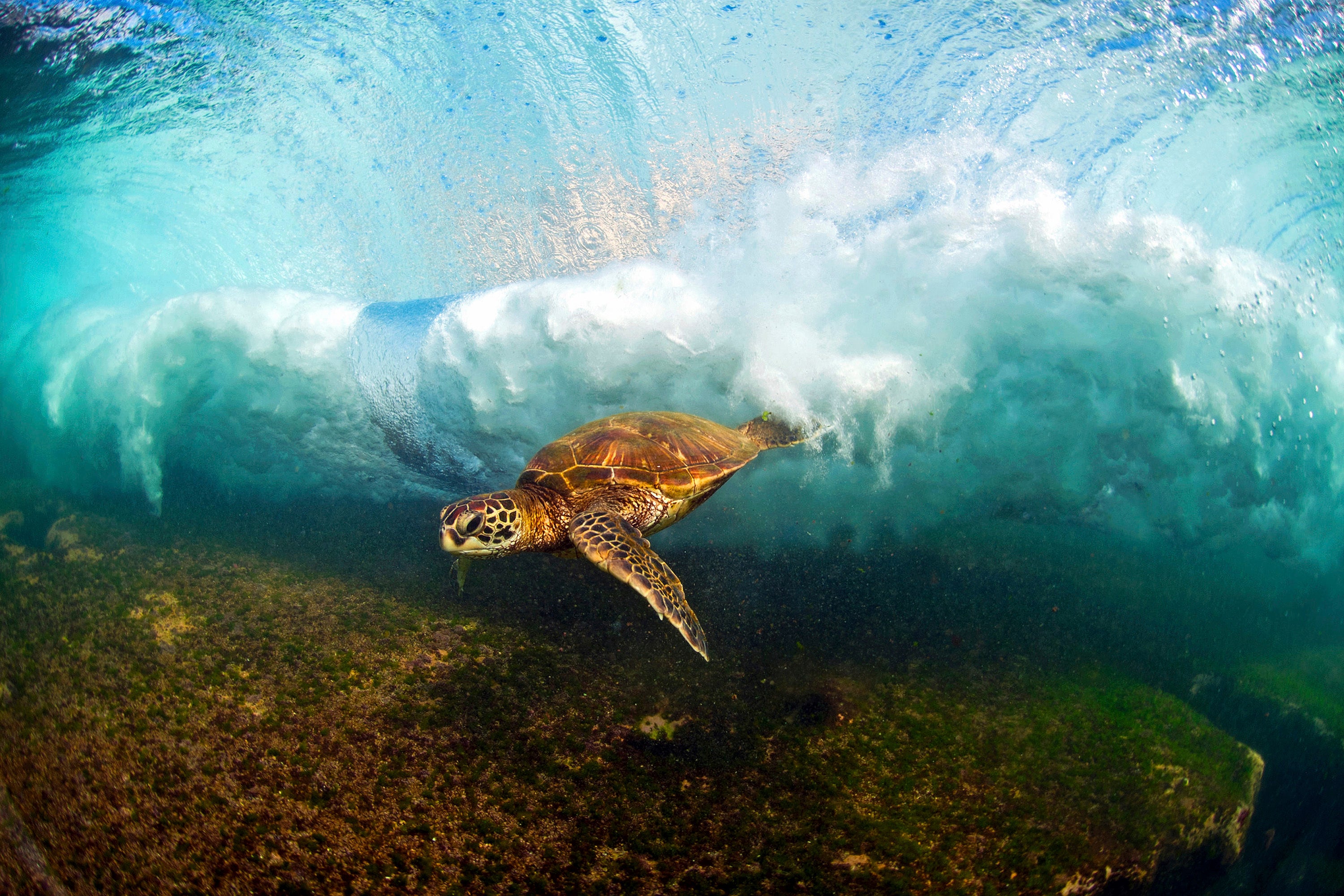Turtles have discovered how to switch off ageing process, scientists find
Scientists discover that defensive mechanisms, such as shells and venom, may contribute to animals’ ability to stop their own bodies from deteriorating, Andy Gregory reports


Turtles have managed to slow down and even completely switch off the ageing process, according to two new studies which subvert the notion of ageing as an inescapable fate.
While no living organism can escape death, scientists have provided the most compelling evidence yet that our cold-blooded compatriots may hold the keys to the long-coveted secret of how to weaken the fatalistic grip of time.
The new studies, both published on Thursday in the journal Science, have found that various species of turtles – and also tortoises, crocodiles and salamanders – have found a way to either slow down or virtually halt senescence, the process of deterioration within the body.
“It sounds dramatic to say that they don’t age at all, but basically their likelihood of dying does not change with age once they’re past reproduction,” said first author Dr Beth Reinke, a biologist at Northeastern Illinois University.
Along with an international team of 114 scientists, Dr Reinke collected data in the wild from 107 populations of 77 species of reptiles and amphibians such as Komodo dragons, garter snakes and tree frogs, in what is billed as the most comprehensive study of ageing and longevity to date.
“Anecdotal evidence exists that some reptiles and amphibians age slowly and have long lifespans, but until now no one has actually studied this on a large scale across numerous species in the wild,” said senior author David Miller, an associate professor of wildlife population ecology at Penn State University.
“If we can understand what allows some animals to age more slowly, we can better understand ageing in humans, and we can also inform conservation strategies for reptiles and amphibians, many of which are threatened or endangered.”
Contrary to many theories, their findings suggest the way an animal regulates its temperature – whether it is cold-blooded (ectothermic) or warm-blooded (endothermic) – is not necessarily indicative of its ageing rate or lifespan, with ectotherms’ ageing rates and lifespans found to range both well above and below the average ageing rates for warm-blooded counterparts of a similar size.
The team also observed negligible ageing in at least one species in each of the cold-blooded groups, including in frogs and toads, crocodilians and turtles.
“We didn’t find support for the idea that a lower metabolic rate means ectotherms are ageing slower,” said Mr Miller. “That relationship was only true for turtles, which suggests that turtles are unique among ectotherms.”
Instead the scientists discovered that animals’ protective traits – such as the hard shells of most turtle species, bony spines or venom – may in fact contribute to slower ageing.
“These various protective mechanisms can reduce animals’ mortality rates because they're not getting eaten by other animals,” Dr Reinke said. “Thus, they're more likely to live longer, and that exerts pressure to age more slowly.”
The team found the biggest support for what she called the “protective phenotype hypothesis” in turtles, Dr Reinke said, adding: “Again, this demonstrates that turtles, as a group, are unique.”
Co-author Professor Anne Bronikowski, of Michigan State University, added: “It could be their altered morphology with hard shells provides protection and has contributed to the evolution of their life histories, including negligible ageing – or lack of demographic ageing – and exceptional longevity.”
The other study published on Thursday, led by the University of Southern Denmark, focused on the impact of captivity upon the ageing process of turtles and tortoises.
Looking at turtles and tortoises living in zoos and aquariums, the researchers found that out of 52 species, 75 per cent of them show extremely slow senescence, while 80 per cent of them have slower senescence than modern humans.
The researchers discovered that some of these species were even able to reduce their rate of senescence in response to the improved living conditions in zoos and aquariums, compared to the wild. It was suggested that as their conditions improve, these turtles can allocate more energy to survival rather than protection, thereby extending their lifespans.
This is in contrast to humans, said biologist Rita da Silva, who told the New York Times: “Our environment continues to get better and better, but we are still not able to switch off senescence.”
Prof Miller added: “Negligible ageing means if an animal’s chance of dying in a year is 1 per cent at age 10, if it is alive at 100 years, its chance of dying is still 1 per cent.
“By contrast, in adult females in the US, the risk of dying in a year is about 1 in 2,500 at age 10, and 1 in 24 at age 80. When a species exhibits negligible senescence, or deterioration, ageing just doesn’t happen.”
Some evolutionary theories posit that senescence appears after sexual maturity, as a tradeoff between the energy an individual invests in repairing damages in its cells and tissues, and the energy it invests in reproduction so that its genes are passed to future generations.
This tradeoff implies that, after reaching sexual maturity, individuals stop growing and start experiencing senescence – their bodily functions gradually deteriorating with age.
However, organisms that keep growing after sexual maturity – such as turtles and tortoises – are believed to have the potential to keep investing in repairing cellular damages, thus potentially explaining their ability to slow and even avoid the decay of senescence.
“Note, however, that the fact that some of them show negligible senescence does not mean that they are immortal; it only means that their risk of death does not increase with age, but it is still larger than zero,” said Fernando Colchero, of the University of Southern Denmark.
“In short, all of them will eventually die due to unavoidable causes of mortality such as illness, said another of the researchers behind the study.”
But the teams remain optimistic about the prospects of future research stemming from their work.
“If we continue to study the evolution of ageing in turtles, at some point we’ll find a clear connection between turtles and human health and ageing,” Dr da Silva said.
Join our commenting forum
Join thought-provoking conversations, follow other Independent readers and see their replies
Comments
Bookmark popover
Removed from bookmarks